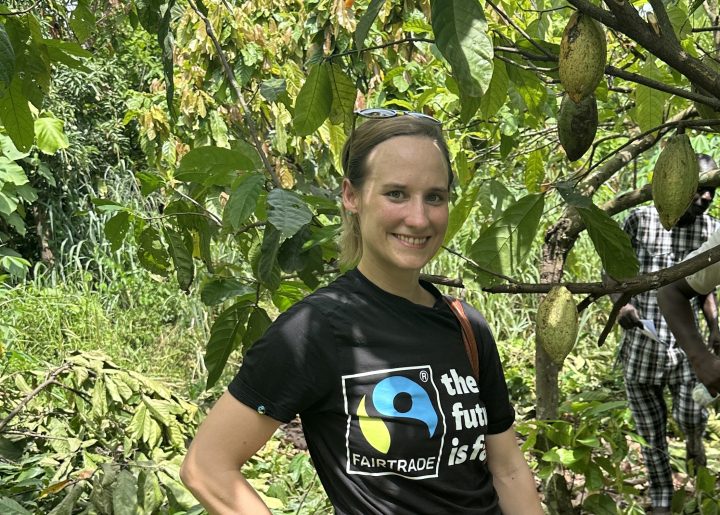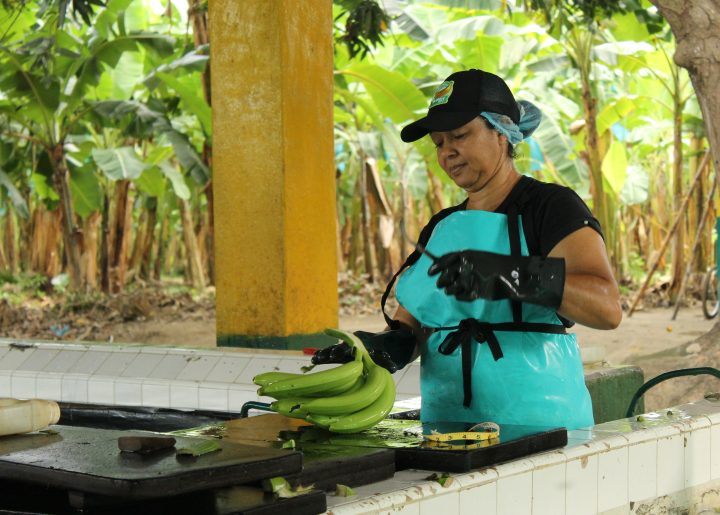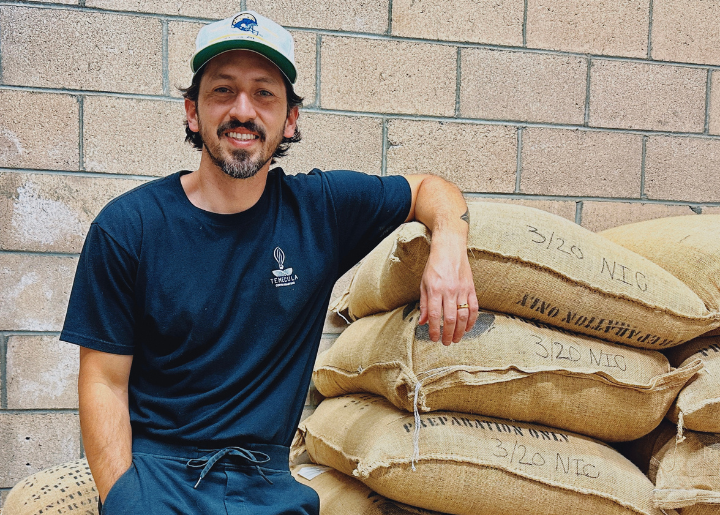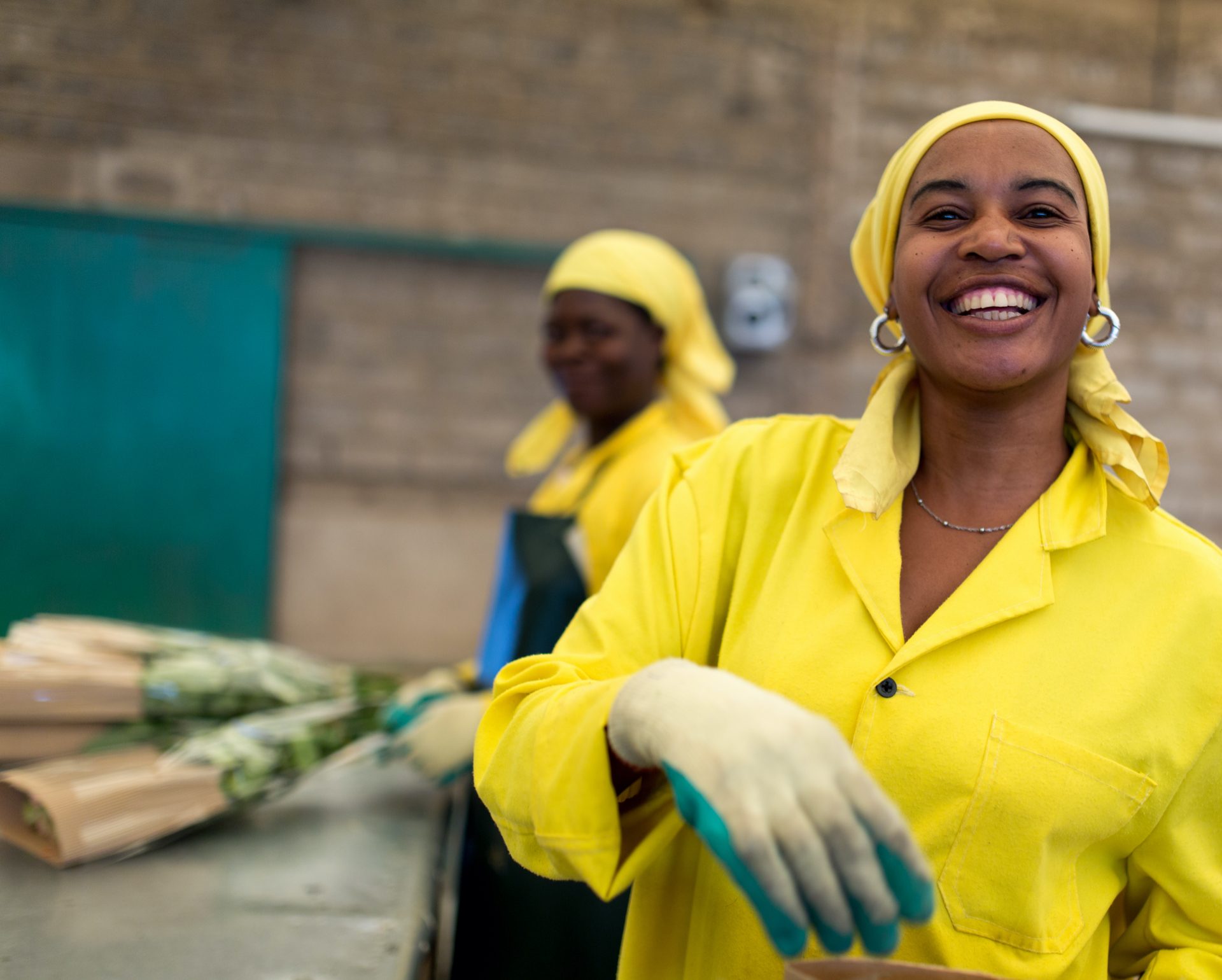Fairtrade America Going Global
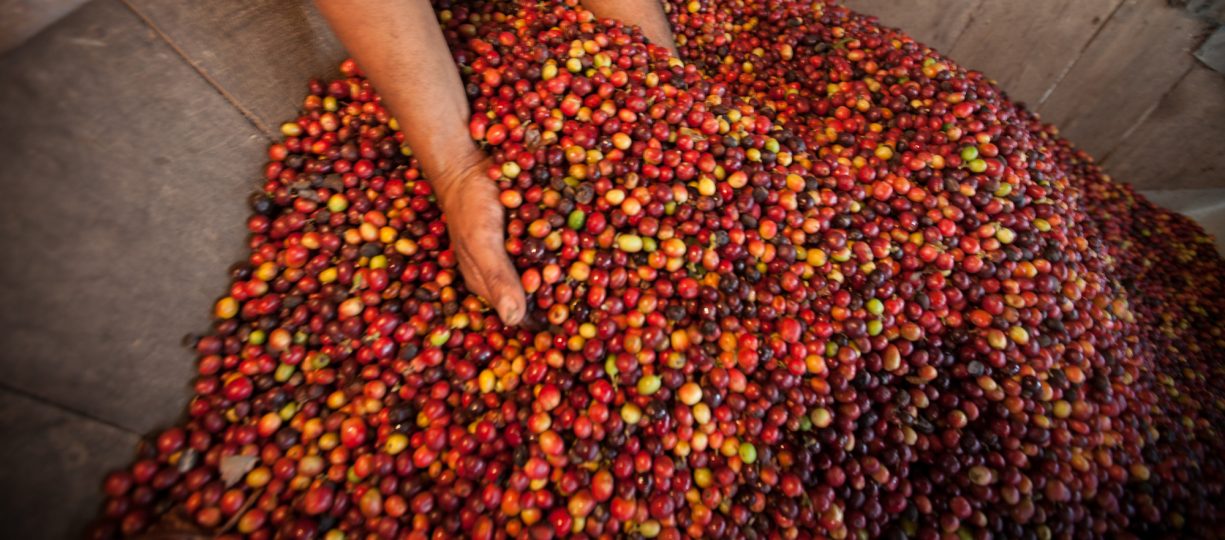
Tapping into the global development agenda, Fairtrade America, the international Fairtrade system, and the farmers and workers we serve aim to make major contributions to the Global Goals for Sustainable Development.
Most people welcome a chance to be part of something larger than themselves. It could be to improve their little corner of the world, or to make things better for people far, far away.
One of the largest, most ambitious manifestations of this eternal impulse is the United Nations’ recently launched Global Goals for Sustainable Development, an audacious collection of aspirations. Millions of people around the world participated, directly or indirectly, in their drafting and ultimately they could touch the lives of billions of people.
In July 2015 I spoke at the United Nations headquarters, on behalf of the international Fairtrade system, to explain some of the many ways in which Fairtrade can make a concrete contribution to these noble and ambitious efforts.
The focus of the Global Goals is not just about ending poverty in some countries; but ending poverty ‘in all its forms everywhere’ while leaving no one behind.
This means that every country has work to do to address inequality and create a better world for all citizens – young and old, North and South, male and female, everyone.
Like the 193 signatory nations of the Global Goals, Fairtrade America is part of something larger, something global. Fairtrade America recently became a full member of Fairtrade International, the world’s most-recognized Fairtrade certification working together with over 1.65 million farmers and workers, and thousands of campaigners, businesses and civil society actors around the globe. Since Fairtrade America was launched four years ago, we have joined together with farmers and workers from around the world to share their perspectives with consumers and companies in the USA.
Fairtrade America now has a seat in Fairtrade’s General Assembly, the highest decision-making body, alongside the farmers and workers and other members (like our peers at Fairtrade Canada, Fairtrade Germany, and 22 other national Fairtrade organizations). This role allows us to fully represent the interests of consumers, companies, and campaigners at the highest level of Fairtrade. We also contribute to the development of Fairtrade Standards and policies, as well as to supporting producers even more.
At Fairtrade America, we believe that being part of something greater takes our work to the next level. This is echoed in Fairtrade’s recently released five-year global strategy, ‘Changing Trade, Changing Lives’ an ambitious piece of work that ties Fairtrade’s goals to the Global Goals for Sustainable Development.
This strategy is the product of a collaborative, wide-ranging effort integrating the thoughts and opinions of individuals from throughout the Fairtrade system. Farmers and workers, traders and brands, NGOs and consumers all contributed to a vision of how Fairtrade can grow and deliver more impact.
It is based on five goals:
- Goal 1: Building Benefits for Smallholders and Workers
- Goal 2: Deepening Impact Through Services and Program
- Goal 3: Building Fairtrade Markets
- Goal 4: Influencing Government Policies
- Goal 5: Building a Strong Global System
We will play our part in seeing these goals through. We know that Fairtrade cannot solve all of the problems faced by the farmers and workers we serve, which is why our new strategy aims to take a holistic view of global problems.
The world is in difficult straits. The effects of climate change are resulting in the loss of 12 million hectares of productive land each year. Women work to produce 60-80% of the world’s food, yet the number of women living below the poverty line has increased by 50% since the 1970s. About 168 million boys and girls around the world are engaged in child labor, mostly in agriculture.
Women work to produce 60-80% of the world’s food, yet the number of women living below the poverty line has increased by 50% since the 1970s.
Many of these issues are interconnected. Poverty cannot be resolved until inequality is addressed; rampant development exacerbates climate change; any approach to eradicating child labor and forced labor must address sustainable livelihoods throughout value chains; and a lack of equal rights for women inhibits progress across the board.
This is why the FAIRTRADE Mark has always been just one small piece of Fairtrade’s work. Though that little mark is the most visible incarnation of our work, Fairtrade is about development and working with farmers and workers to create the world they want to see. This includes supporting programs in eradicating child and forced labor, helping farmers adapt to a changing climate, pushing for greater gender balance, advocating for workers’ rights, and strengthening small producer organizations.
By working together with other organizations around the world, Fairtrade America is tapping into the global Fairtrade movement and contributing to the achievement of the Global Goals. Something that cannot be done alone, but by working in coordination.
We’re in this together
Fairtrade America partners with brands on the journey to certification and beyond. We can help with everything from finding a certified supply chain to marketing your newly certified product.
Get in Touch
